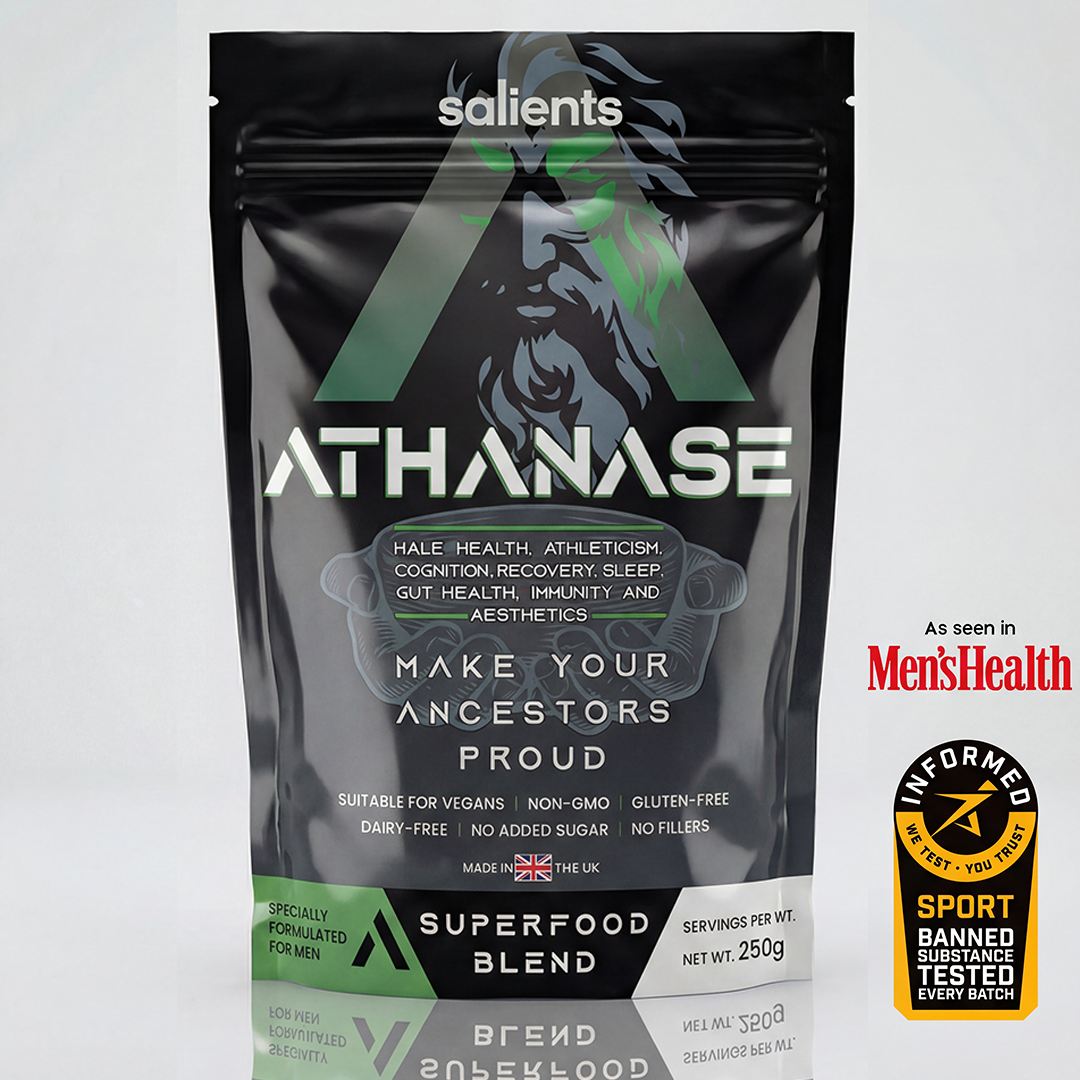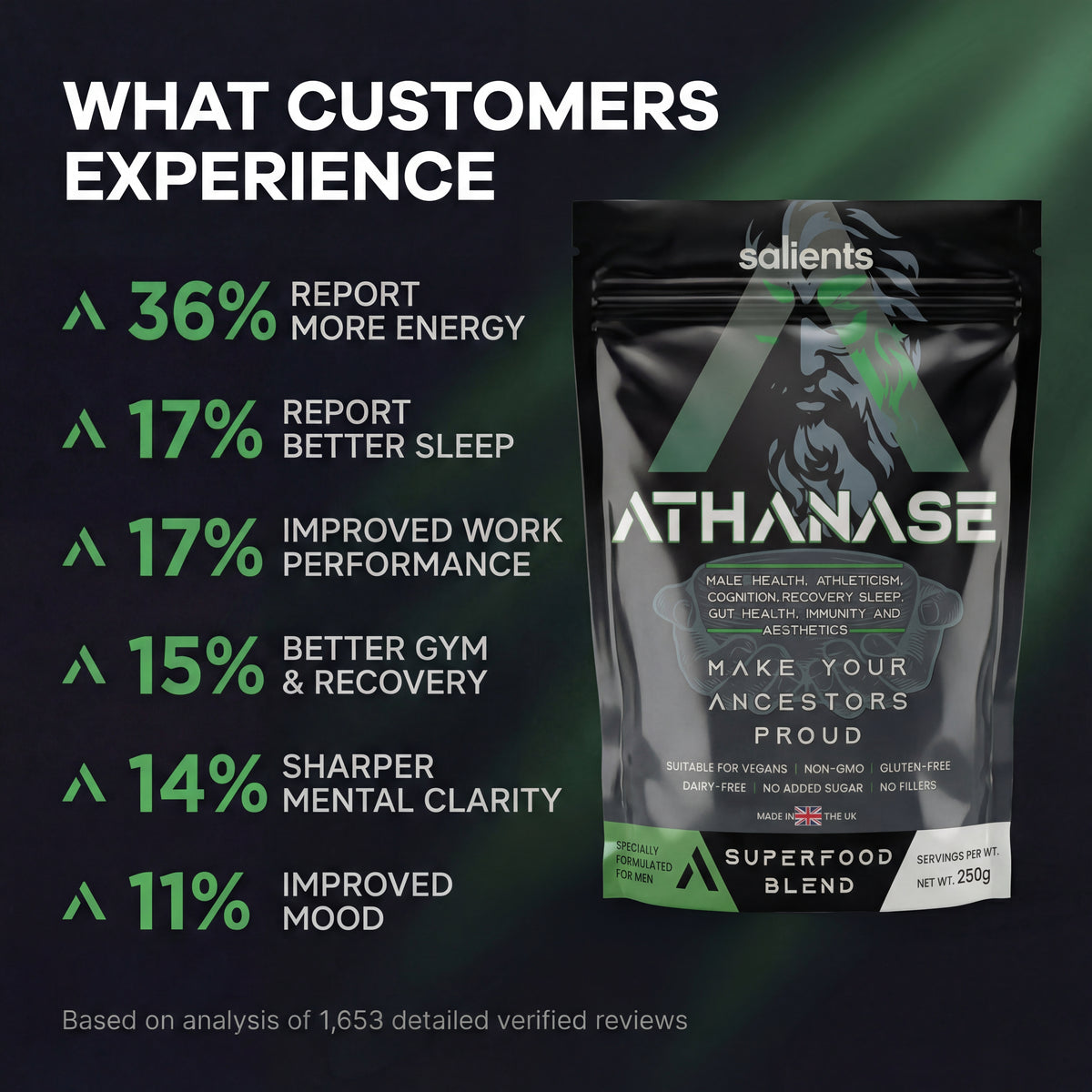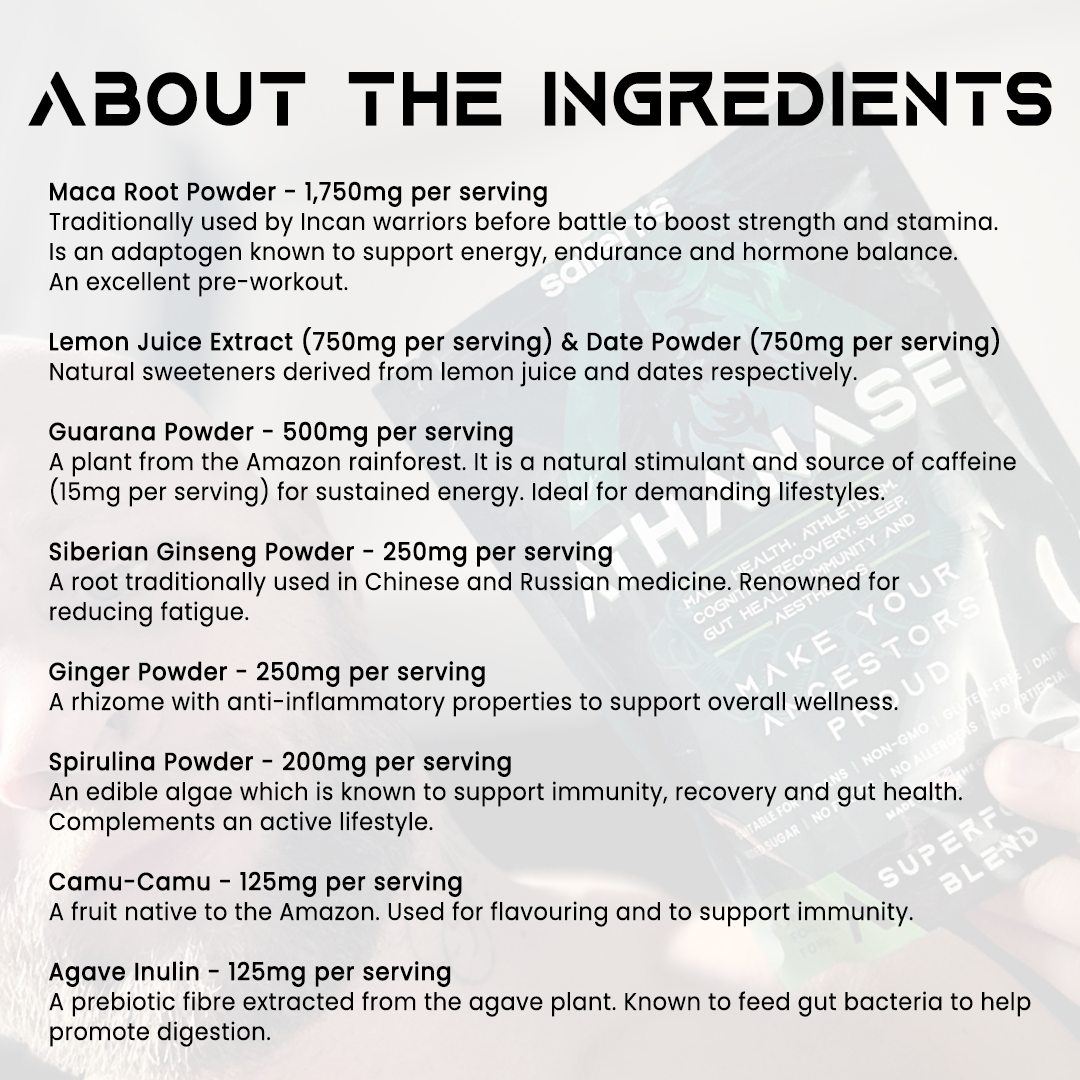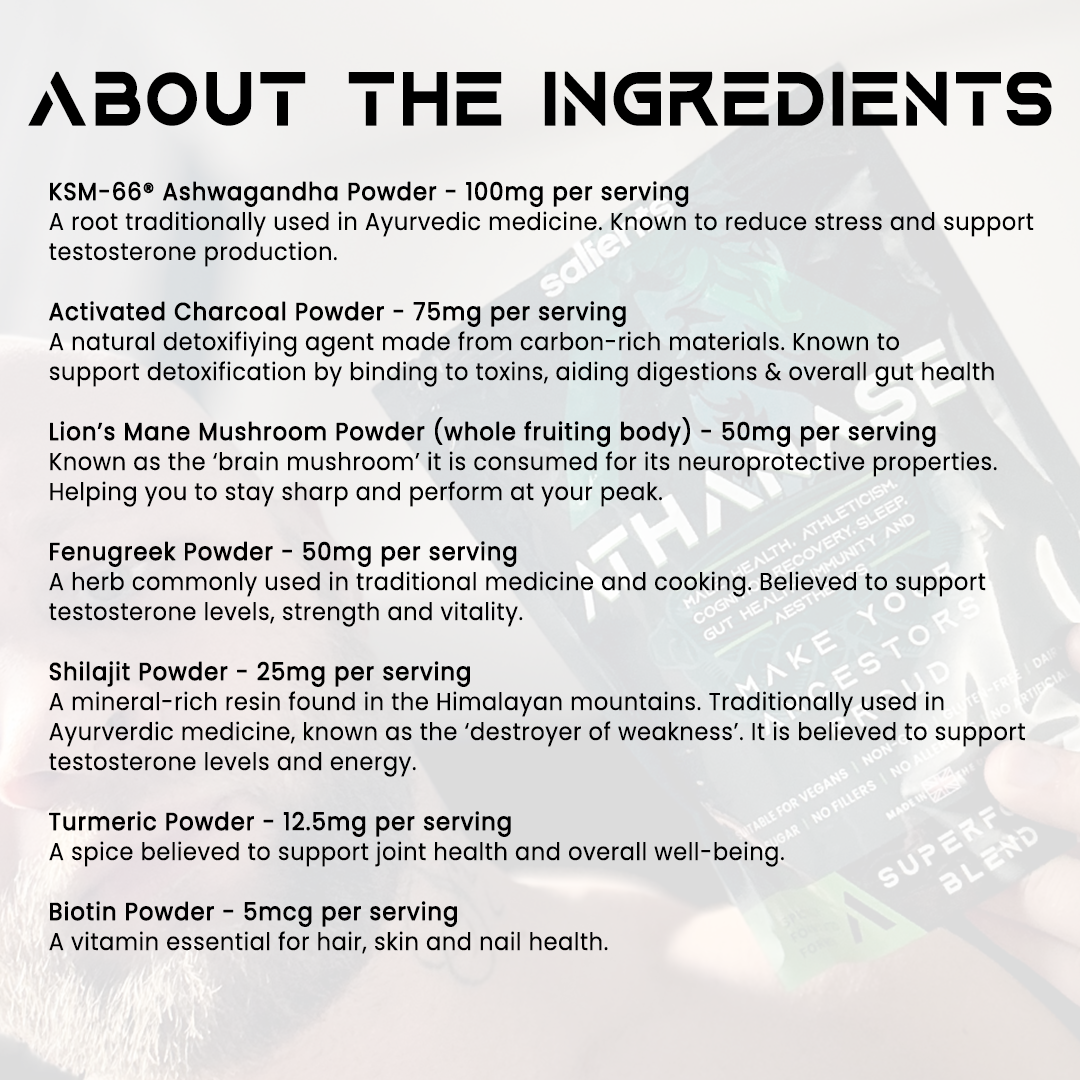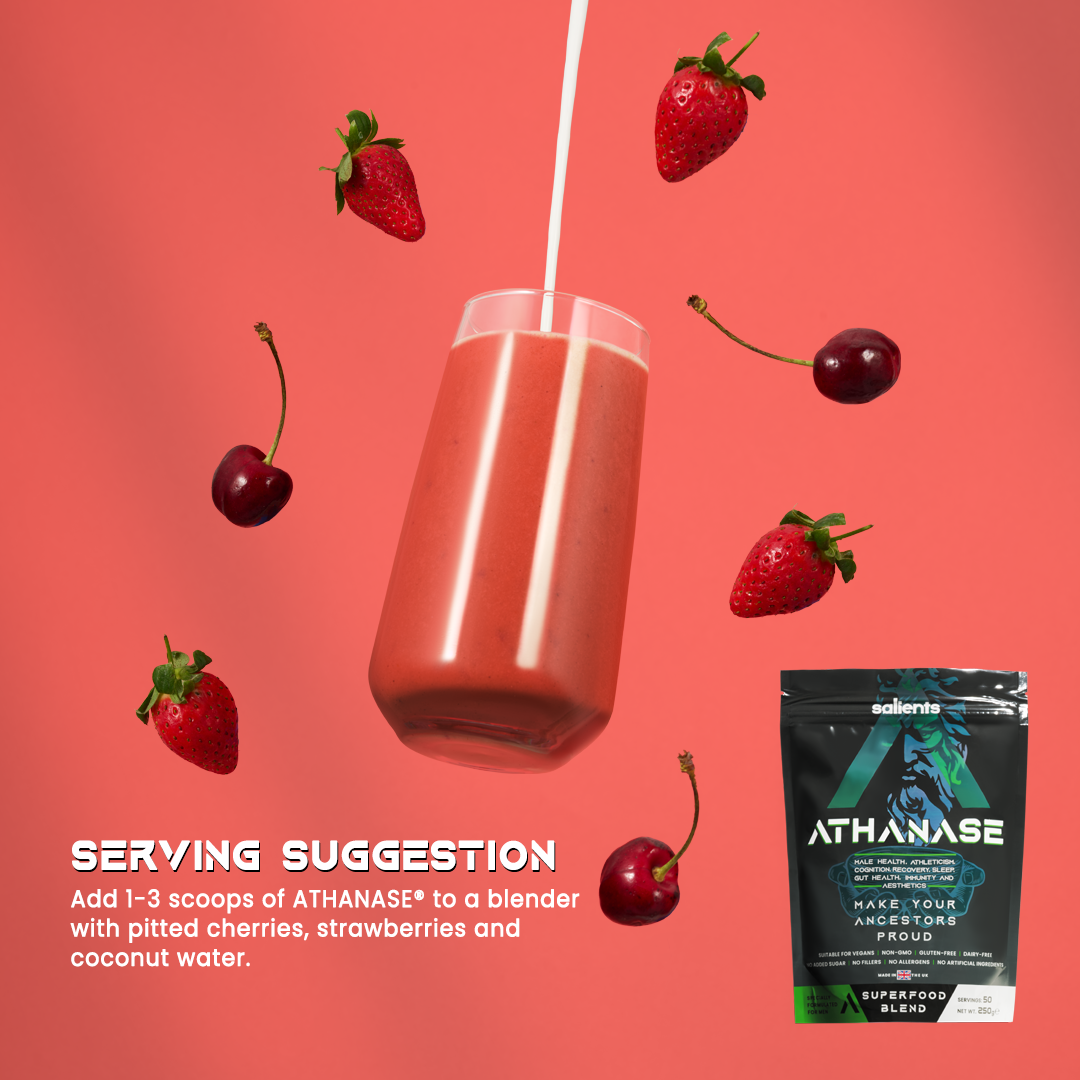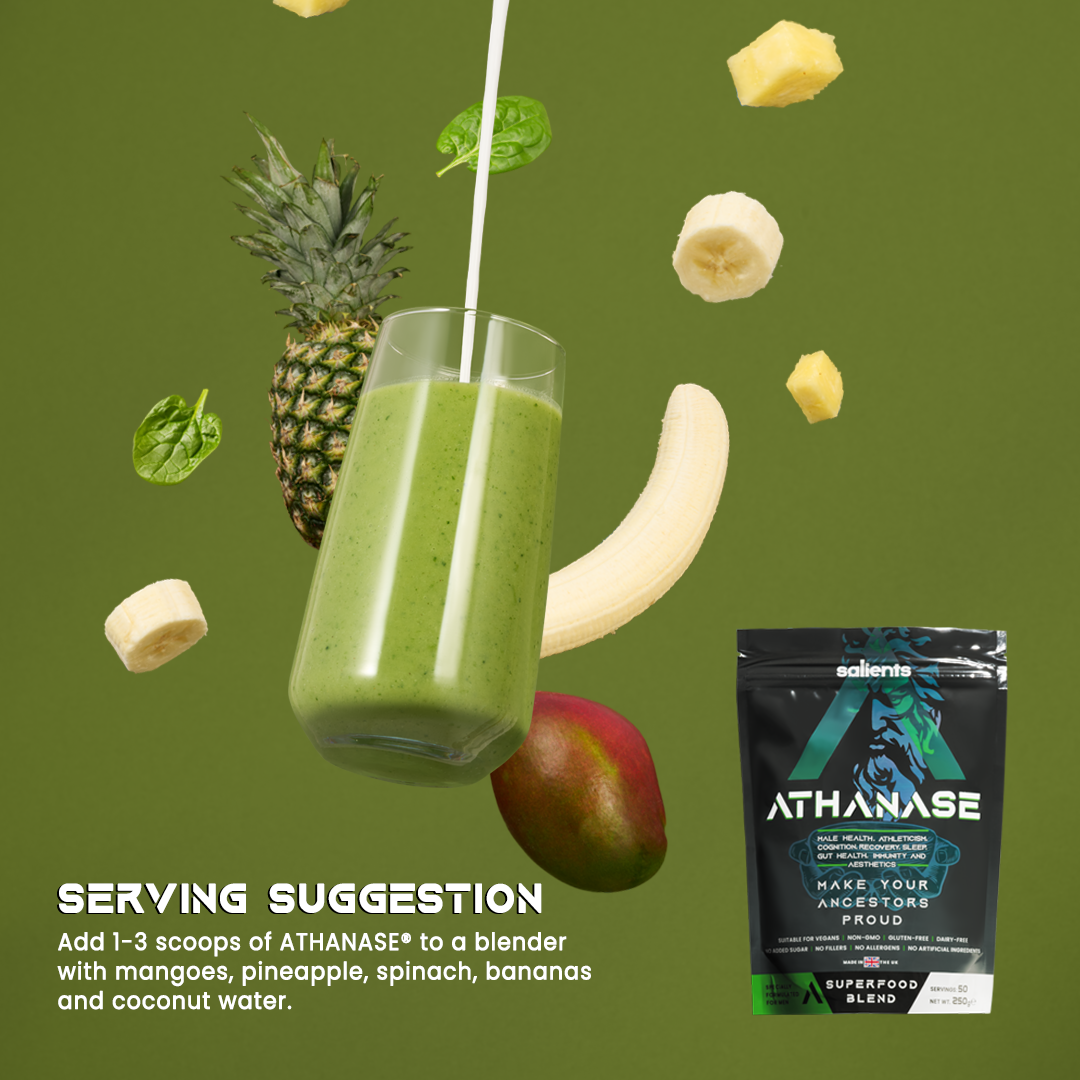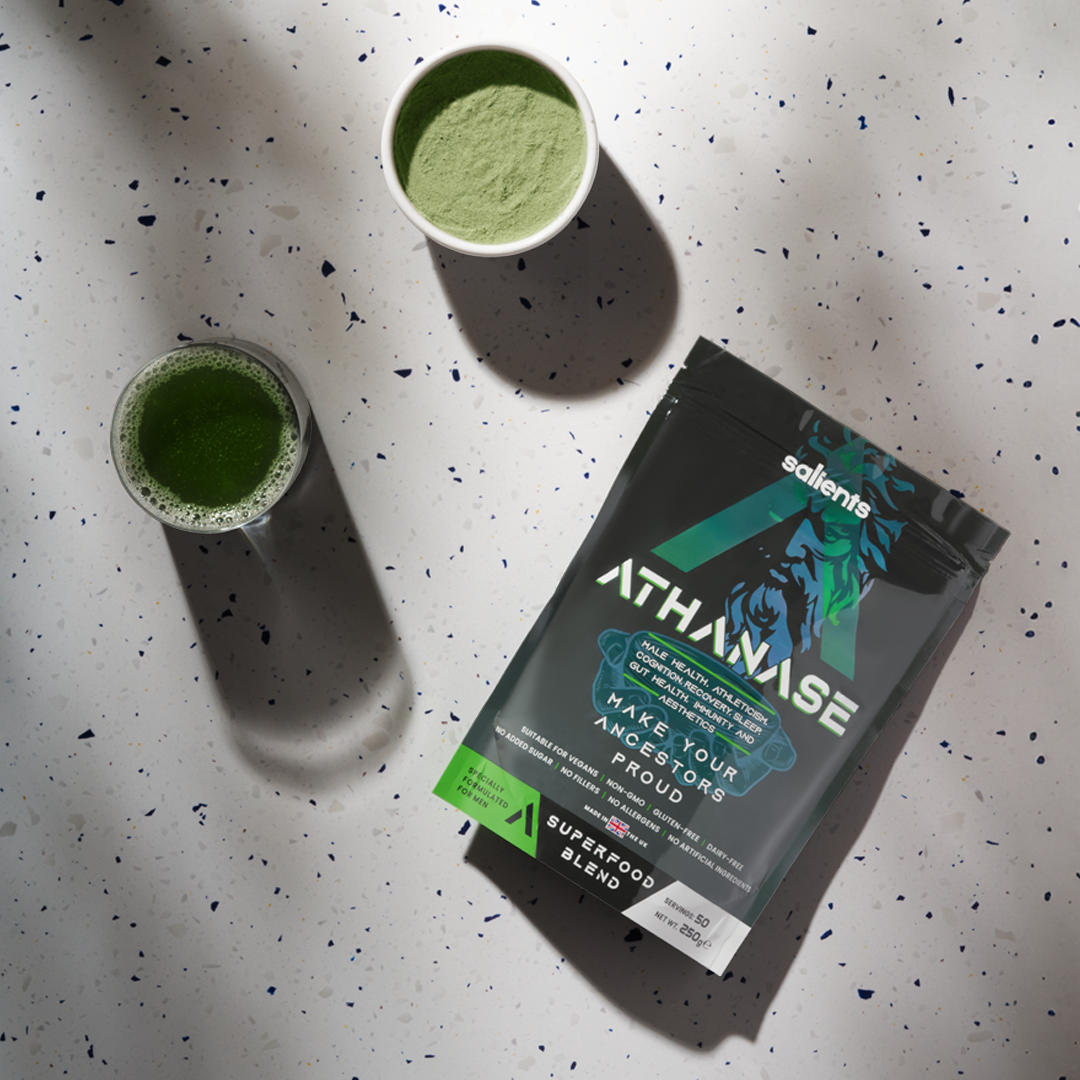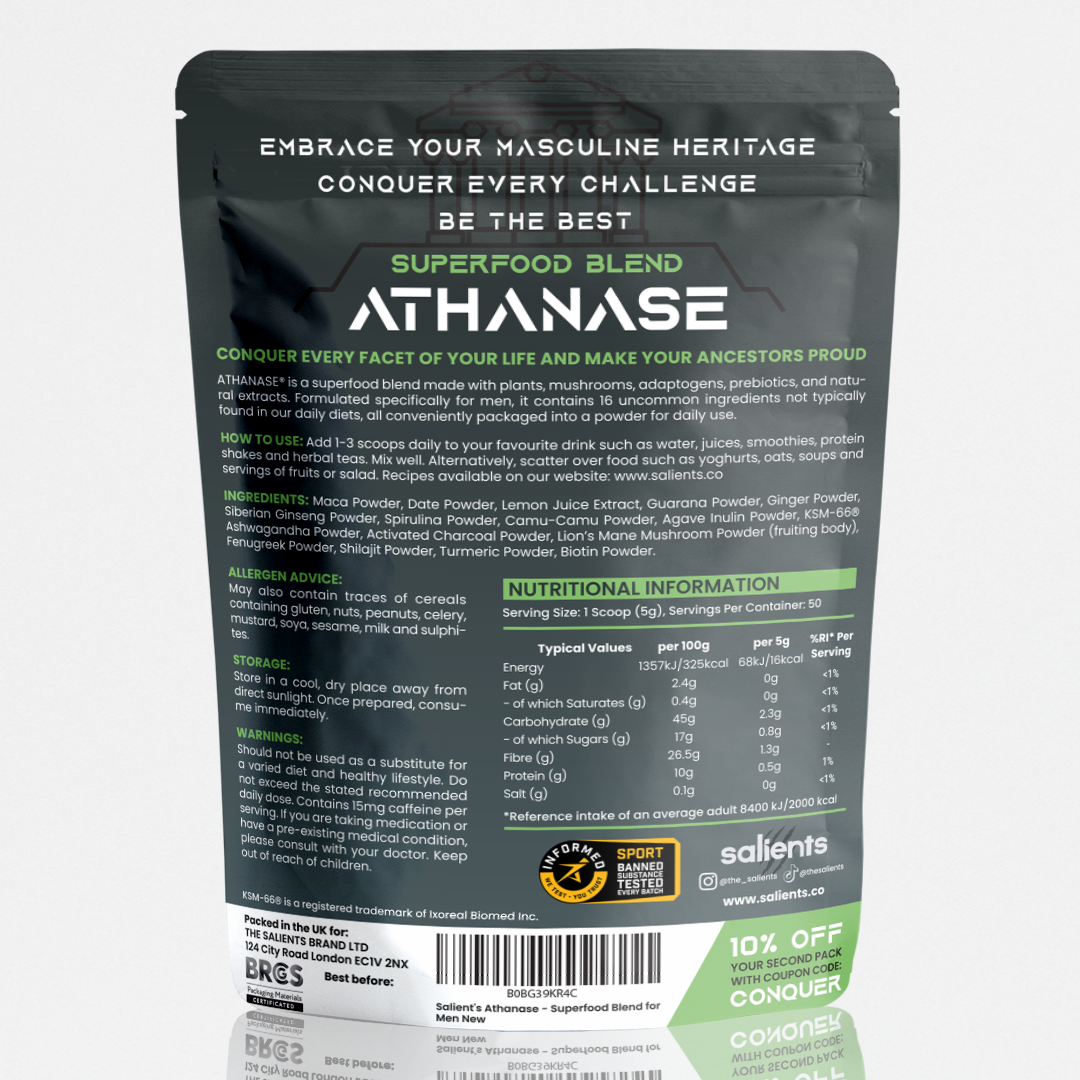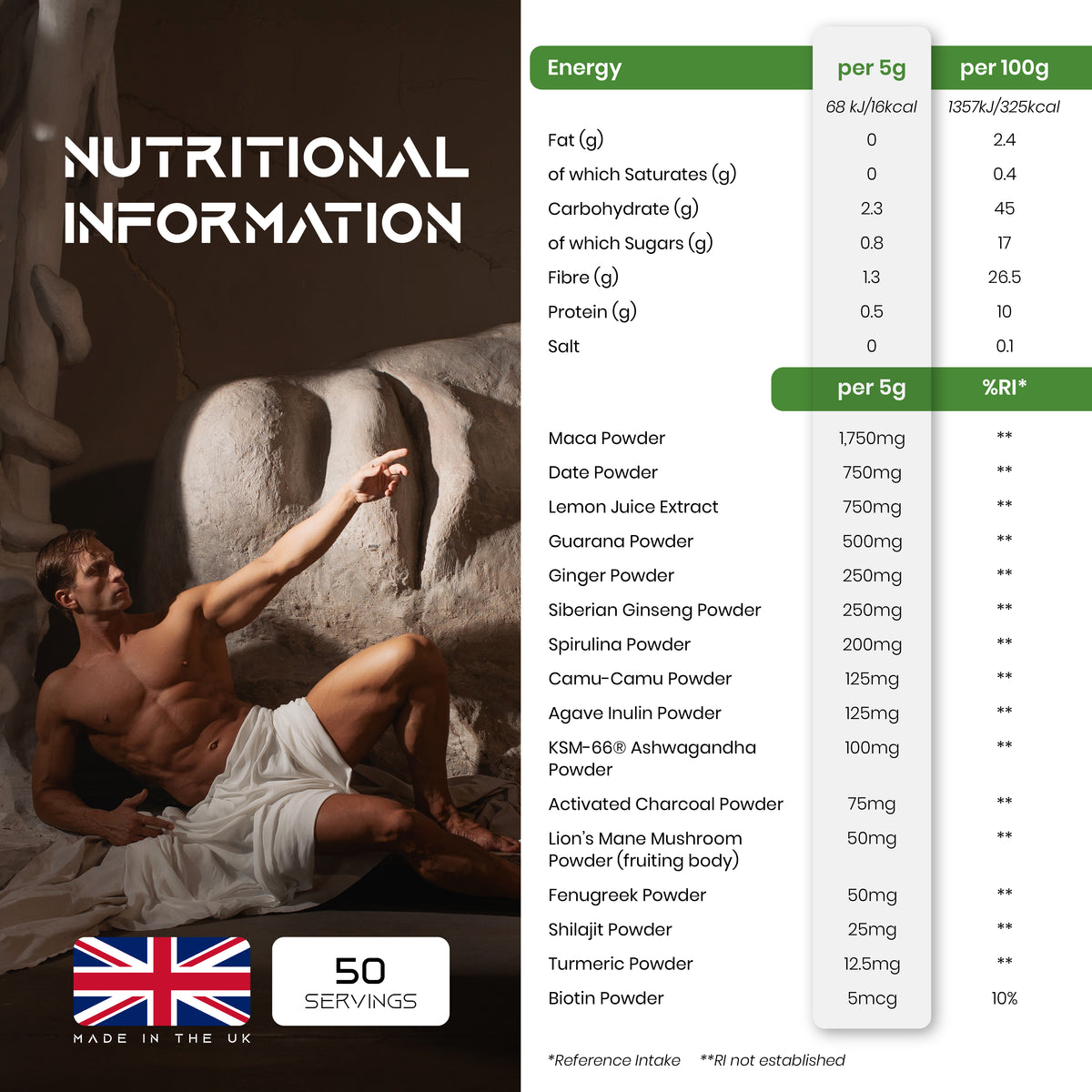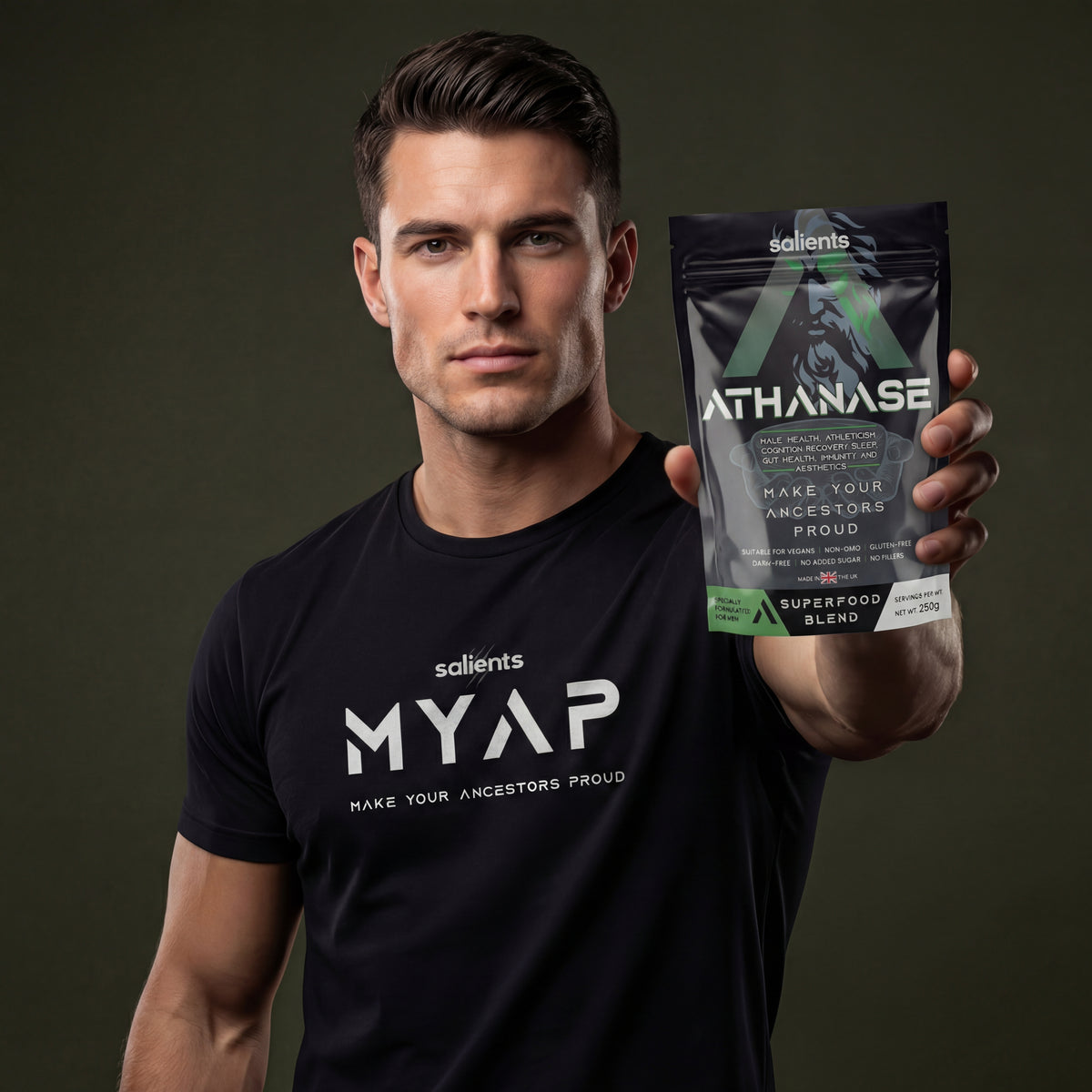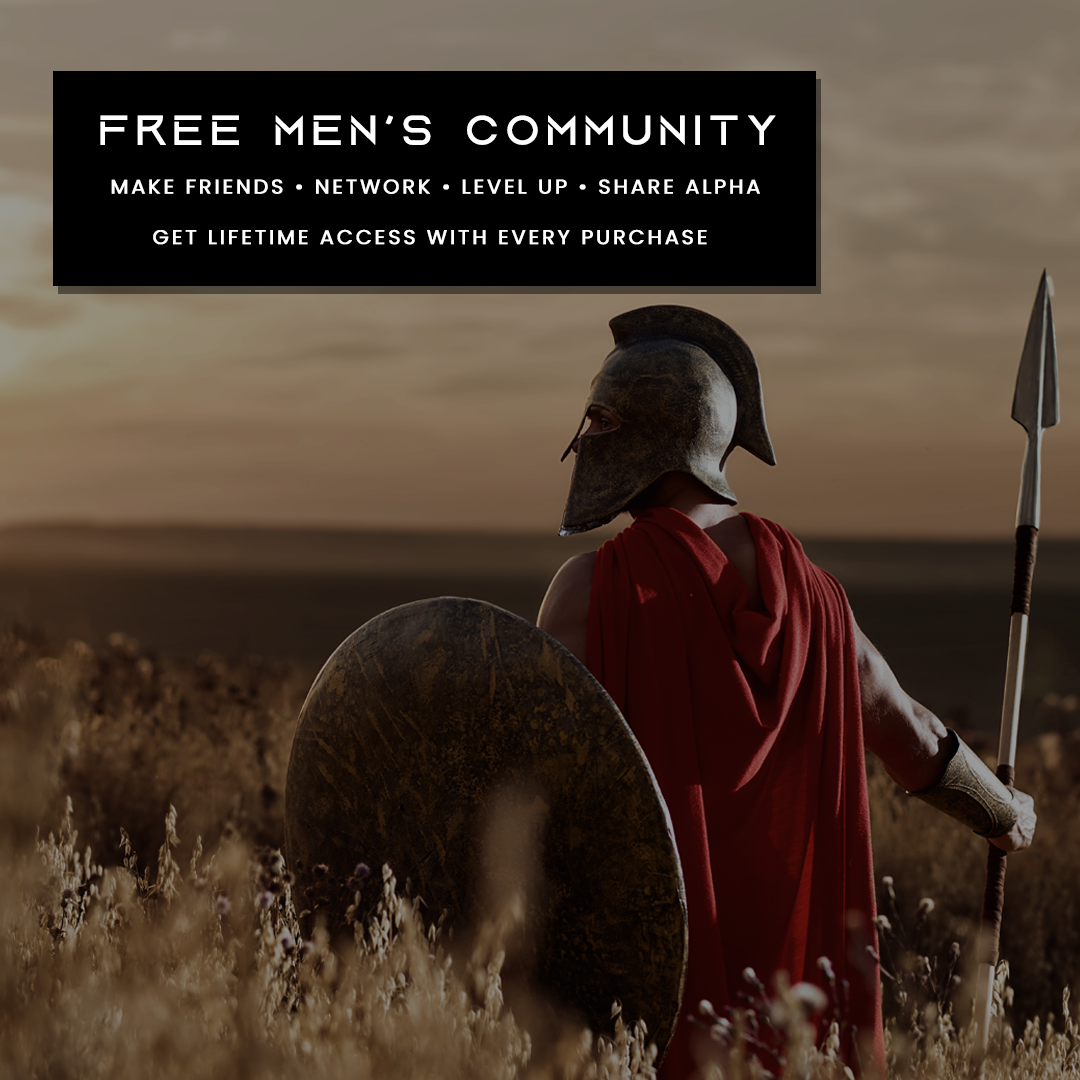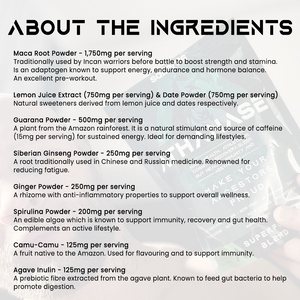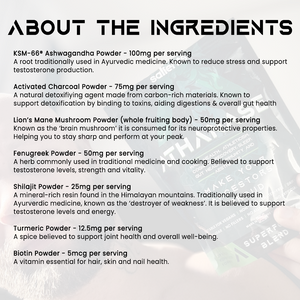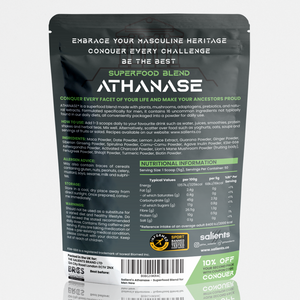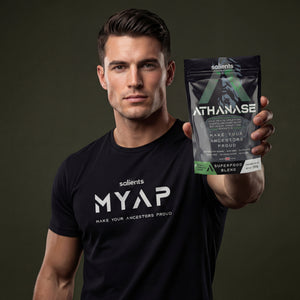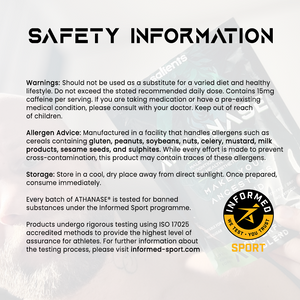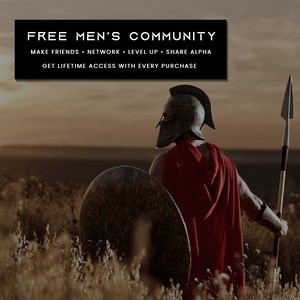Your Cart is Empty
MAKE YOUR ANCESTORS PROUD | FREE SHIPPING ON ALL UK AND US ORDERS
MAKE YOUR ANCESTORS PROUD | FREE SHIPPING ON ALL UK AND US ORDERS
Discipline Hack: How to Outsmart Your Brain and Achieve Your Goals
by The Salients May 15, 2024 8 min read
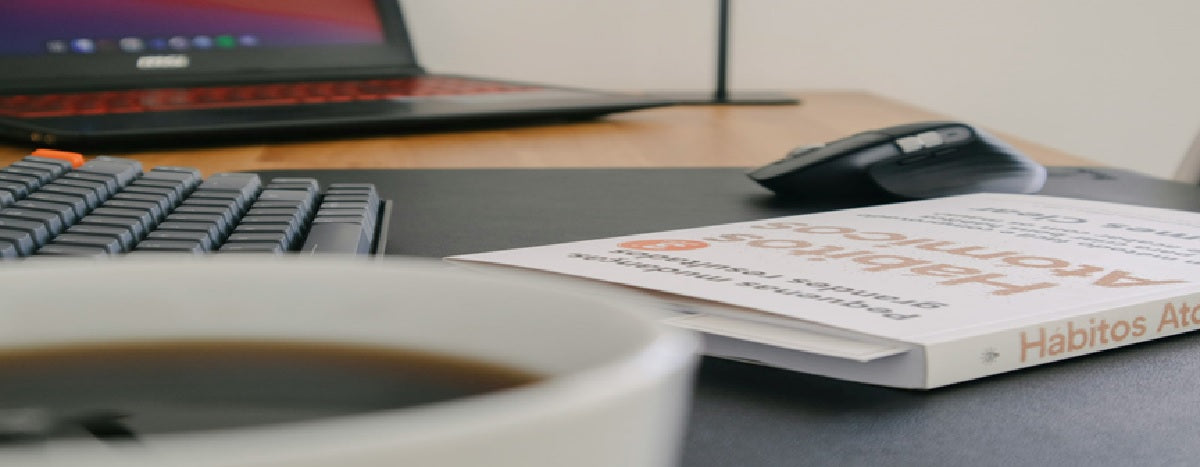
True, lasting discipline isn't always just about suffering through unpleasant tasks but strategically aligning your environment and habits for lasting success.
Did you know our brains are wired to take the path of least resistance? This means that willpower alone is a recipe for burnout.
Because willpower won't cut it. We need a strategic approach to make discipline automatic.
Here’s what we’ll explore in this blog post:
- How our brains can be 'rewired' for lasting change.
- How to tweak your environment and outsmart resistance.
- Why tiny steps lead to significant shifts.
- How to infuse 'have-tos' with novelty and enjoyment.
- The key to turning ambitions into daily actions.
Beyond Willpower – The Neuroscience of Habit Formation
Think of your brain as a dense forest. Whenever you act, think, or feel a certain way, it's like forging a tiny pathway through the trees. This remarkable ability of our brains to change and adapt is called neuroplasticity. The more you travel a particular path (i.e., repeat a behaviour), the broader and more well-established it becomes.
This is the key to habits! As neuroscientist Andrew Huberman often explains on his Huberman Lab Podcast, repeated actions become easier and easier over time thanks to neuroplasticity.
When a behaviour becomes ingrained, a part of the brain called the basal ganglia takes over. This is like switching to autopilot – the action simply flows without much conscious thought. Ready to transform yourself into a reader?
If you consistently pick up a book at the same time and in the same spot each day, eventually, the act of sitting in that chair may automatically trigger the urge to read.
Neuroscience research shows that this shift from a conscious effort to automatic behaviour is crucial for lasting discipline. While willpower might not be a finite resource in the strictest sense, it is a resource that fluctuates depending on numerous factors (stress, sleep, decision fatigue, etc.). Relying on it is like always driving in high gear – eventually, you'll burn out. Proper discipline is about building those 'mental superhighways' that make the choices you want nearly effortless.
How to Make Discipline Easy:
Our brains are wired to seek the easiest path. So, instead of fighting an uphill battle against yourself, strategically design your environment to make success almost inevitable. This concept, known as "choice architecture," has been widely researched and proven to be a powerful tool for shaping your behaviour.
Here's how to become an architect of your discipline:
- Outsmart your temptations: This isn't just about snacks. Think about all the 'temptations' that derail you. Is it mindless scrolling after getting into bed, delaying sleep? Put your phone on a charger across the room. Trying to focus but getting distracted by inbox notifications? Turn them off during dedicated work blocks. Remove the temptation, and you remove the need to resist it constantly.
- Set up success cues: Visual reminders are incredibly powerful. Want to exercise more? Lay out your workout clothes the night before, place your running shoes by the door, or set your yoga mat where it's visible. These cues make the desired action the obvious choice and train your brain to crave the right actions.
- Remove friction: Every extra step between you and your goal increases the chance of getting sidetracked. Want to start flossing daily? Don't hide the floss in a bathroom drawer; keep it visible next to your toothbrush. In his book "Atomic Habits," author James Clear emphasises how reducing friction is vital to building new habits.
- Automate when possible: Set up recurring grocery deliveries for healthy staples, have a recurring monthly donation to a cause you care about, or use an app to block distracting websites during work hours. Automation removes the need for a decision, ensuring good habits happen on schedule.
These may seem like minor adjustments, but they massively influence our behaviour. A cleverly designed environment makes the "right" choices far easier than the alternatives.
How Small Actions Lead to Big Change:
Grand goals can be paralysing. We set massive resolutions that immediately fill us with dread, making procrastination all too tempting. This is where the magic of micro-habits comes in!
Instead of trying to overhaul your life overnight, focus on laughably small actions that are nearly impossible to fail at.
Why Micro-Habits Trump Willpower:
Outsmart your brain
When confronted with daunting tasks, our brains put up mental resistance. Remember the 'path of least resistance' principle we discussed? Micro-habits sidestep this, making it almost effortless to get started.
Success breeds success
Completing a micro-habit, no matter how small, gives you a little boost of dopamine – a feel-good neurotransmitter linked to reward and motivation. This makes you more likely to repeat the action, building momentum.
The foundation for lasting change
James Clear explains that consistency is far more critical for success than intensity. Micro-habits are all about reliable, daily actions that add up over time, transforming into powerful behaviour changes.
Micro-Habits in Action
Think of micro-habits as the first few steps through that metaphorical 'brain forest.' Here are some ideas to get you started:
Health & Fitness
- Put on your workout clothes and walk out the door (you might find yourself wanting to run once you're started!).
- Do just a few minutes of stretching or bodyweight exercises when you wake up.
- Replace one sugary drink a day with water.
- Set a timer for 10 minutes and brainstorm potential side hustle ideas. Don't censor yourself, just get as many ideas down on paper as possible.
- Dedicate 15 minutes to researching one potential side hustle. Look for competitors, pricing models, or online communities related to the niche.
- Break down your side hustle idea into steps. Choose one tiny task to complete today (drafting an Etsy description, setting up a social media page, etc.).
- Write just one sentence for your novel, article, or blog post.
- Set a 5-minute timer and free-write whatever comes to mind.
- Brainstorm a list of 5 potential topics for your writing project.
- Find one person online (LinkedIn, a relevant interest group) whom you admire or would like to connect with. Send a brief, personalised message.
- Set aside 10 minutes to update your contact list. Add new people you've met recently, or categorise existing contacts for easier follow-up.
- Think of one person in your network for whom you're grateful. Send them a quick email or text expressing your appreciation.
- Read one page of a non-fiction book.
- Practice a language on Duolingo for 5 minutes.
- Watch a short TED Talk on a topic you've been curious about.
15 Minutes a Day: The Key to Lasting Change
The key is to make the micro-habit so easy you can't say no. Start with 15 minutes working on your goals a day. Over time, you can gradually increase as the behaviour cements into a habit. But even if some days all you manage is that tiny first step, you're still building a powerful and, most importantly, sustainable foundation for discipline!
"Discipline" is Boring – Embrace Fun and Novelty
When we hear the word "discipline," it often conjures images of grim-faced suffering. But true, long-lasting discipline isn’t always about forcing yourself to endure unpleasantness daily. The key is to find ways to make those necessary tasks enjoyable or at least a little more interesting.
Change it up
Routine can make things feel monotonous. If your workouts have grown stale, try another workout, a new exercise, or switch up your playlist. Similarly, if your usual study methods feel ineffective, experiment with flashcards, try teaching the concept to someone else or find a relevant documentary.
The key is to find ways to make the process more enjoyable and engaging, which helps in building the habit. While things won't always be 100% enjoyable, stay focused on the end goal. Regular experimentation will help you find the best methods and routines for you, making consistency easier to achieve.
Why Your Brain Needs a Challenge
Remember, our brains are wired to crave novelty. New experiences light up reward pathways, strengthen neural connections, and make forming essential habits easier. Think of it as adding a bit of 'spice' to enhance the pathways you're carving in your 'brain forest.'
Systems Over Goals – Your Discipline Blueprint
Goals provide a sense of direction – they're the "what." Systems are the "how" – the roadmap for achieving those goals. However, it's important to remember that most worthwhile goals (especially in areas like money, status, and physical transformation) take time and often involve setbacks.Focusing too narrowly on the outcome makes it easy to become discouraged if we don't see immediate results. A well-designed system shifts your focus to the consistent, controllable actions that lead to lasting success, even when progress seems slow or failures happen..
Why Systems are Superior
Control vs. hope
Goals often feel out of our direct control. A system puts you in the driver's seat – you control the actions, moving you towards your desired results.
Process over outcome
By focusing on the daily actions of your system, you detach from the need for immediate success. This helps avoid demotivation when progress seems slow or setbacks occur.
Iterate and improve
A system can be evaluated and refined. Did you skip workouts? Maybe they need to be shorter or scheduled for a different time. This adaptability is crucial for long-term adherence.
Building 'identity' change
James Clear emphasises the importance of systems by explaining that true change comes from shifts in identity. When your system aligns with who you want to become ("I'm someone who prioritizes fitness," "I'm a writer who creates daily") it reinforces that new identity, making discipline more effortless.
Examples: Systems in Action
- Goal: Get organised
- System: 15-minute tidy-up before bed, designated spot for keys and wallet, Sunday afternoon inbox-zero session, donate one unused item daily.
- Goal: Improve finances
- System: Track weekly spending, set a monthly budget with savings goals, automate savings transfers, and research one new investment strategy per month.
- Goal: Learn a language
- System:10 minutes with a language app daily, listen to podcasts in that language while commuting, label items around your house with their translation, and schedule a weekly conversation exchange.
Remember, successful systems are personalized. Experiment to find actions that feel sustainable for you. Depending on your time and energy, you can scale up or down a good system, but the core components remain consistent.
Conclusion:
True, sustainable discipline isn't just about brute force but strategically aligning your actions with your goals. It's about working with your brain's natural operations, not constantly fighting against it.
By designing your environment for success, focusing on tiny habits, embracing fun and novelty, and prioritising systems over goals, you build those 'mental superhighways' where the right choices become easy. Willpower may get you started, but this effortless discipline approach carries you through for the long run.
Your challenge: Pick one area of your life where you want more discipline. Could it be your health habits, a writing project, or a workspace? Apply one of the concepts we discussed, and notice how a small change can spark a significant shift in your results.
References:
James Clear's Website & Book:
Clear, J. (2018). Atomic habits: An easy & proven way to build good habits & break bad ones. New York: Avery, an imprint of Penguin Random House. [Include if this is your main source for his work]
Website: https://jamesclear.com/atomic-habits
Choice Architecture Research:
Szaszi, B., Palinkas, A., Palfi, B., Szollosi, A., & Aczel, B. (2018). A systematic scoping review of the choice architecture movement: Toward understanding when and why nudges work. PLOS ONE, 13(6), e019934 Nudges Work. https://doi.org/10.1371/journal.pone.0199349
Willpower Article:
Inzlicht, M., Schmeichel, B., & Macrae, C.N. (2014). Why self-control seems (but may not be) limited. Trends in Cognitive Sciences, 18(3), 127-133. https://doi.org/10.1016/j.tics.2013.12.009
Neuroplasticity & Habit Formation:
Smith, K. S., & Graybiel, A. M. (2013). A dual operator view of habitual behavior reflecting cortical and striatal dynamics. Neuron, 79(2), 361–374. https://doi.org/10.1016/j.neuron.2013.05.038
Huberman Lab Podcast:
Huberman Lab Podcast. How to Focus to Change Your Brain. https://m.youtube.com/watch?v=LG53Vxum0as
The World's First Superfood Blend For Men
ATHANASE
2243 reviews
£28.00
MAKE YOUR ANCESTORS PROUD® with ATHANASE®. A blend of herbs specially formulated for men, to help conquer 7 areas:
| |
MALE HEALTH |
| |
ATHLETICISM |
| |
MOOD & COGNITION |
| |
RECOVERY & SLEEP |
| |
GUT HEALTH |
| |
IMMUNITY |
| |
AESTHETICS |
As seen in Men's Health Magazine and Certified by Informed Sport.
I
Ian Bryer Great Product
Been using this product about 2 weeks and already feeling the benefits
R
Richard Rough taste but mixed with electrolytes or juice its fine. Amazing product for increasing strength and recovery when hitting the gym daily🤘🏼
J
Jordan Brennan Athanase
Fantastic product. Feel the effects pretty quickly. Unexpected improvement in stamina.
I
I Y Athanese
Really good product, stopped using for a week to see if there was any difference and definetly noticed the difference it had been making. I felt less tired throughout the end of the day when taking it.
J
James Green Best on the market
Tastes horrible but with electrolytes and creatine then bobs your uncle
Select a purchase option to pre order this product
Countdown header
Countdown message
Countdown message
DAYS
:
HRS
:
MINS
:
SECS

